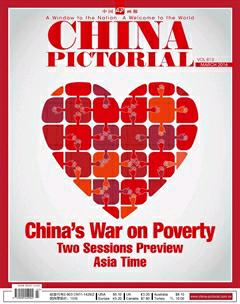Baby-Booster
by+Li+Zhuoxi
Whether Chinas “universal two-child policy” will give way to a baby boom and greatly boost the countrys economic development has become a widely debated topic as of late.
According to Yang Wenzhuang, an official from the National Health and Family Planning Commission, by 2020, about 17 million babies will be born, with an additional 3 million newborns each year as a result of the new policy. And Chinese economy will be boosted by the boom. The policys impact on the real economy is already being
felt. The maternal and baby products industries saw a bump and stocks involving baby food, toys and drugs witnessed a big rise. Many parents are even upgrading homes and cars in preparation for a second baby.
The population factor has contributed massively to Chinas rapid economic growth over last three decades. Research released by Economist Cai Fang, vice president of Chinese Academy of Social Sciences, shows that the demographic dividend accounted for 27 percent of the countrys economic growth. He believes the challenge Chinas economy is facing is closely related to its demographic trend featuring a continuously decreasing fertility rate and aging population. To solve these problems and fuel the economy, a quick change in the birth policy was a clear solution.
More importantly, a baby boom is not short-term but contin- uous strength, which will not only improve consumption structure and relieve employment pressure but also alleviate the strains of an aging society as well as future labor shortages.

